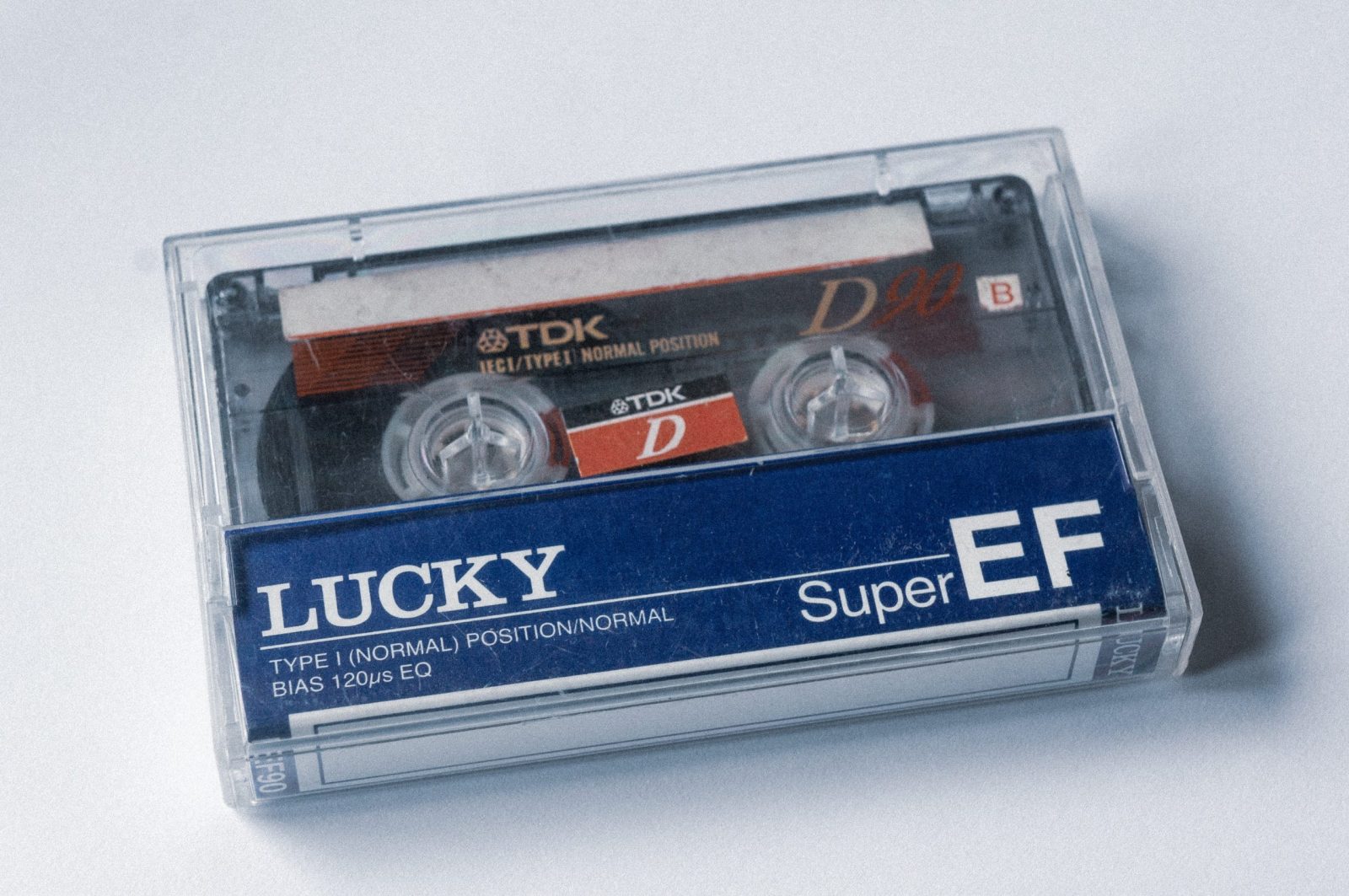In recent years, like the rise of vinyl, cassettes tapes have been enjoying a major resurgence.
Cassette tapes are growing in popularity across Melbourne’s music scene, but why revive the archaic medium?
The unrelenting march of technology continues to push the world further online with every cloud update and new software. Social interaction, memories, even employment is constantly moving further into cyberspace and out of the real world.
But counter-reactions to tech-giants and streaming sites are striving to sustain the tangibility of music collections. Vinyl, as the classic analogue music medium, has steadily grown in popularity as people search for ways to physically represent their musical tastes.
As a cheaper analogue offering, cassette tapes are increasingly being produced by dedicated Melbourne music outlets too. But when cassette production equipment is growing extinct, along with their players, why do some people insist on maintaining the outdated medium?
Keep up to date with all the latest music interviews, news and reviews here.
When Joe Buchan started Melbourne record label .jpeg Artefacts, he wanted to use the label to release his friends’ and his own work. Creating physical artefacts of the releases was an important aim of Buchan’s from early on, hence the label name.
All of .jpeg Artefacts’ first seven online releases were accompanied by a cassette version. Buchan wanted to mimic the work of labels he liked, while also providing another opportunity for fans to engage with the .jpeg Artefacts output.
“Files are pretty ephemeral and it’s pretty difficult to love a file,” he said. “But I think even for people who don’t own a cassette player, they’ll still purchase the tapes, and they work nicely as ornaments.”
A deeper connection with physical musical collections is an important element to Buchan’s label and his love of music as a whole. Although his father passed away when he was young, as he got older and discovered his own music taste, he found many of the same records and tapes were in his dad’s old collection.
“It’s this very weird way to be connected to someone that I didn’t actually know very well,” he said.
“I wouldn’t ever do that with his iTunes library or whatever, it’s just not the same, so it became important to have like a physical copy of what was on the label.”
Marthouse Records, run by Dougal Shaw, is another local label steadily generating cassette releases. Based in Brunswick but originally from central Queensland, Shaw created Marthouse to foster his own musical opportunities outside the status quo and has released over 20 records and tapes since 2017. For Shaw, tapes again provided another cost-effective avenue to support artists.
“I always thought it was an easy way to support a band you like if you didn’t have heaps of dosh,” he said.
“I’d always buy one if bands were selling them at shows, before I even had a tape player, because they were like five or ten bucks and you get a little memento.”
View this post on Instagram
Both Shaw and Buchan insist that playing the tapes, while enjoyable, is not front of mind. Buchan even admits he has sent out several self-made tapes that had no music on them, yet no one complained. Rather than a functional method of playing music, the tapes instead allow Marthouse to encourage unplugging from the online ether and returning to the tangible.
“Nothing’s real anymore, it’s mostly digital.” Shaw says. “We exist more and more in online spaces.
“It’s nice to own something, to have it in your rack, to see the art and the liner notes, to hear the tape player whirring along and the tape fizzing as it gets older.”
Similarly, to Buchan, the resurgence of tape releases is a cultural reaction to the growingly online world.
“People who were really underground or interested in going against the norm, they were using computers in the ‘80s and ‘90s,” he says. “They were interested in exploring that technology because it was seen as a reaction to tapes and vinyls.
“But now as tech giants have a monopoly over things, people are sort of like looking more at what their belongings are and realising that it’s not necessarily the best way to live.”
Paul Milne, owner of Milney’s Bar in Fitzroy, credits the growing catalogue of quality new releases on tape as key to the medium’s resurgence. Milney’s plays almost exclusively tape in the bar, thanks to a vintage hifi system Milne has collected over a number of years.
“I have always liked purchasing music in physical form. With cassettes, they have a certain sound quality and warmth unlike any other format,” Milne said.
Last year, the bar started an ongoing mix series on cassette, with all profits from their first tape going to the Victorian Aboriginal Health Service.
New tapes have found their way onto Melbourne shelves thanks to facilities such as DupeShop, a local operation that facilitates tape shipments from a duplication plant in Canada.
DupeShop founders, Jake Harry and Chris Apeitos, found many of the lo-fi hip hop tapes they played on their radio show came from the same tape duplicator. Due to the Canadian factory’s vintage and trusted gear, rather than set up their own production, the two friends kickstarted their own operation, as DupeShop, sourcing tapes from a reliable source and facilitating them for indie record labels and artists.
After initially setting up in 2017, they found that the demand was far greater than they had thought. That same year, Bandcamp released statistics saying that cassette sales rose by 41% in 2017.
“That’s when we realised, actually we might have stumbled on to an actual market that is growing here,” Apeitos says. “It was very much like, ‘Whoa, this is on the up’.”
Like most involved in cassettes, fans craving ownership and reinvigorating tangibility is what they say is revitalising the medium.
“When I actually had a collection that I was maintaining, I was able to cultivate greater experiences with the music that I was collecting,” Apeitos continues.
“Spotify, if you just chuck on your Discover Weekly… it’s nothing like building an emotional connection with your particular band or album that you’ve poured your heart and money into.”
Despite the undeniable increase in popularity of cassettes, DupeShop is a passion project more than anything for Apeitos and Harry. While they navigate slowly perishing production gear and increasing shortages of analogue tape, it’s fans’ passion to keep collecting cassettes and the desire to support artists that keeps DupeShop going.
“The people and artists we’re meeting along the way, it feels really great to be part of the industry,” Harry says. “We’re not only a part of the music industry as a whole, but we’re part of a really niche … subsection of the music industry, where folks are focusing on [the] more tangible.
“There’s more heart in the projects,” Harry continues, “as opposed to the other end of the music industry which is heading in some pretty questionable directions in terms of supporting artists.”
DupeShop hope to one day source some A-grade vintage equipment to commence a fully-fledged operation on local shores.
Functionality and playability are not priorities when it comes to the modern cassette scene. It’s about encouraging people to connect with the music they love on a deeper level; to engage with the art and display it in their own way; to accumulate collections that support the artists who produced them, and to unplug from their online lives and return to the tangible.
These are the reasons why these passionate tape lovers are keeping this medium alive, and why a growing number of people are beginning to create their own cassette collection.
Keen on another fun read? Check out our new indie artists column, spotlighting The Vovos, Winter McQuinn and Spiritual Mafia.







